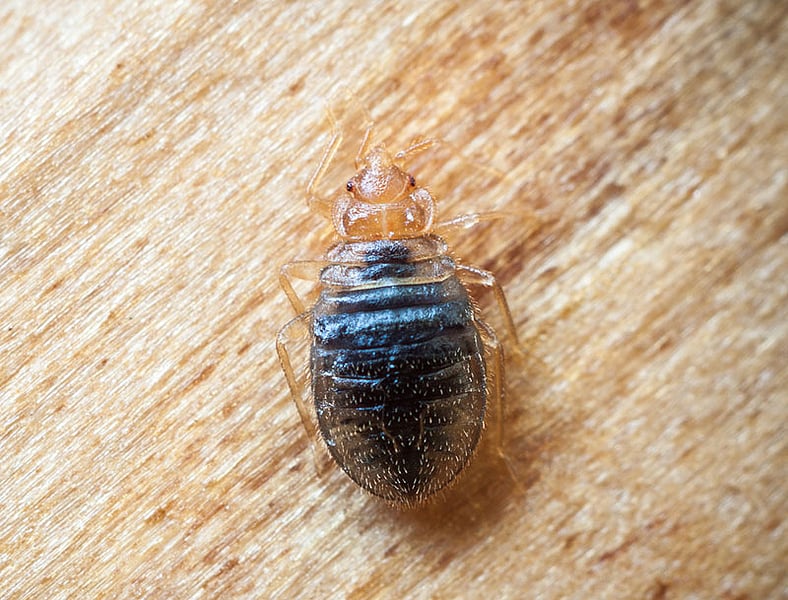Submit your contact info here or click the "Contact me about Sync" button below and we will reach out to you with more information.
Get Healthy!

- Cara Murez
- Posted December 1, 2022
Two Veterinary Meds Show Promise Against a Tough Foe: Bed Bugs
Two common drugs that veterinarians use to kill parasites on pets could be the solution to getting rid of bed bugs.
Both fluralaner and ivermectin, which are used to kill fleas and ticks on household pets, could also kill bed bugs. The newer, longer-lasting fluralaner showed especially strong potential.
This new research comes from a North Carolina State University (NCSU) study that examined the drugs and their effectiveness in controlling bed bug populations on poultry farms.
Entomologists and veterinary scientists from NC State's College of Veterinary Medicine tested bed bug death rates in different experiments.
One included mixing blood with each of the drugs on a lab bench and letting the bugs eat it. In the other, bed bugs fed off chickens who had received the treatments topically or through ingestion.
"The drugs affect receptors in the insect's nervous system,"said corresponding author Coby Schal, a professor of entomology.
Both drugs killed most bed bugs on the lab bench. Fluralaner worked even better on bed bugs that showed resistance to common insecticides, the investigators found.
"The bed bug is a globally important insect,"Schal said in a university news release. "The last few decades have seen a resurgence of bed bugs in homes, and now we're seeing bed bugs return to poultry farms. Since there is no proven method to stop bed bugs in commercial farms, the potential problems on poultry farms could be massive. We're trying to get ahead of it by developing technologies that can eliminate bed bugs."
Fluralaner was also highly effective at killing bed bugs that fed on chickens.
Ivermectin did not work in that experiment, possibly because the chickens quickly clear that drug from their systems, the study authors noted.
"We used the recommended dosage of ivermectin, either in a topical form or ingested, but neither was able to kill bed bugs,"said first author Maria González-Morales, a former doctoral student at NCSU.
Though fluralaner is new and mostly used for companion animals, Europe and Australia have approved it for use in the poultry industry. Ivermectin is used on household pets, larger animals and for anti-parasitic purposes in humans, particularly in Africa.
Adding fluralaner to poultry drinking water could be effective against bed bugs on poultry farms, the researchers said, along with monitoring, education and heat treatments.
"The health effects to poultry from bed bug infestation are not well documented, but anecdotally poultry farmers see animal welfare concerns like stress and anemia, which could negatively affect meat or egg production,"González-Morales said.
Schal added that there are other issues as well.
"There are also concerns for workers on these farms considering how easily bed bugs can spread from poultry to people,"he added.
The findings were recently published online in Parasites & Vectors.
More information
The U.S. Environmental Protection Agency has more on getting rid of bed bugs.
SOURCE: North Carolina State University, news release, Nov. 29, 2022







